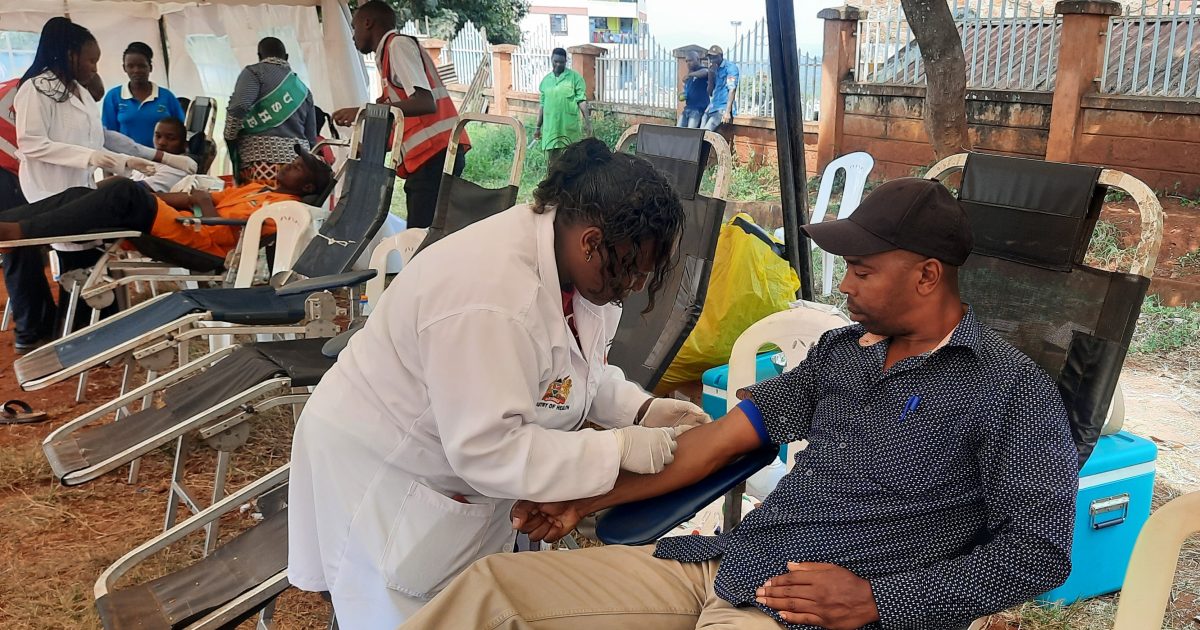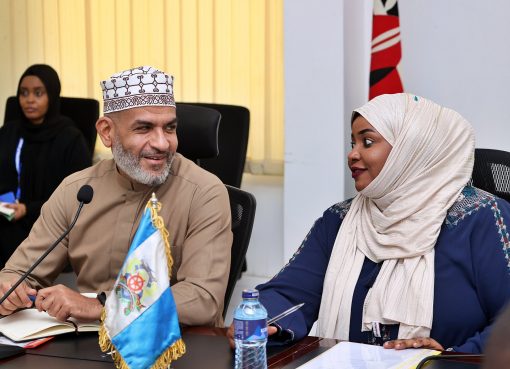Health Cabinet Secretary, Susan Nakhumicha has called upon Kenyans to voluntarily donate blood to support provision of quality healthcare.
On Wednesday, Nakhumicha observed that regular blood donations will ensure individuals and communities have access to affordable and timely supply of safe and quality blood.
Speaking during celebrations to mark World Blood Donor Day in Murang’a, the CS stated that availability and accessibility of safe blood and blood products is crucial in saving lives and attaining universal health coverage.
She explained that the government has successfully implemented blood collection satellites in all the 47 counties thus bringing the collection process closer to the communities.
“The ministry of health has made remarkable progress in reorganisation of blood collection services through an inter-governmental framework on coordination of blood transfusion services,” noted the CS, saying this has revolutionised the way blood is collected and distributed across the nation.
Nakhumicha underscored the reorganisation of blood collection services saying it has seen a significant increase of blood donation rising from about 130, 000 to more than 348, 000 units.
“This positive growth is a testament to the successful capacity building initiatives undertaken in collaboration with counties,” she added.
The CS further said that in the next financial year the government is committed to achieve the World Health Organisation’s target of one percent of the population voluntarily donating blood.
“We have strengthened our collective ability to meet the increasing demand for safe blood and improve healthcare outcomes for our people,” she remarked.
During her visit, the CS launched a blood collection satellite at Murang’a Level-5 hospital which will make the county blood independent.
The satellite blood collection centre will help in blood donation, screening and storage. The facility has capacity to store blood for a maximum period of two years.
Nakhumicha further stated that the government is prioritising its overall digital transformation agenda by implementing various digital programmes to enhance efficiency and ensure effective management of resources.
“One of these initiatives is digitizing key healthcare systems such as the hospital management system, chanjo portal, and the Damu-ke, which is a blood bank management information system,” she averred.
She continued “By digitizing these systems we aim to establish a comprehensive track and trace mechanism for all blood collected and transfused in the country.”
Nakhumicha asked the county governments to prioritise and allocate budgets for the county blood banks.
“It’s essential to understand that the blood collected through voluntary donations is primarily consumed within the respective referral and transfusing hospitals of each county,” she added.
In his remarks, Kenya Tissue and Transplant Authority (KTTA) Chief Executive Officer Dr Maurice Wakwabubi stated that Kenya last year collected 348, 715 units of blood, which translates to 70 percent of the targeted total of 500, 000 units of blood.
He said the amount of units of blood collected last year was the highest collected since independence.
“This was commendable and laudable in that it was a 200 percent increase from the year 2020,” he said.
The CEO added that KTTA and partners organizations’ aim is to collect one million units which the universal health coverage target is.
Governor Irungu Kang’ata on his part said his administration is working on various programmes to boost provision of healthcare to Murang’a residents.
He noted the blood collection satellite which was set up by the national government in partnership with his administration, will help the county to stop relying on other counties in supply of blood.
“The blood collection satellite will ensure patients get treatment here in our local facilities without being transferred to hospitals outside Murang’a,” he added.
By Bernard Munyao and Purity Mugo



